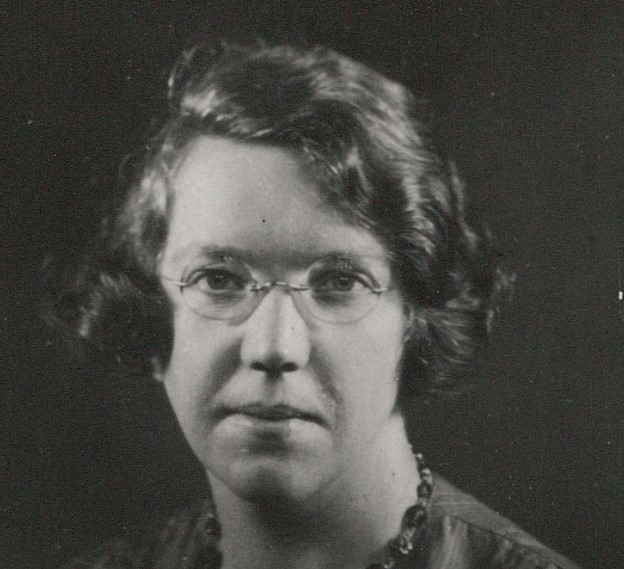
Written by: Dr. Carol Rittner, RSM
Jane Haining was born in Dunscone near Dumfries, Scotland. A committed Christian, she worked for ten years at a threadmaker's in Paisley, but her life changed forever when she attended a meeting in Glasgow about the Church of Scotland’s Jewish Mission. She told a friend, “I have found my life-work.”
In 1932 Jane became Matron of the Church of Scotland’s Mission in Budapest. Some 400 children attended the school, a mix of Christians and Jews. Jane was popular with the pupils and loved her work at the school.
When the Second World War broke out in 1939, Jane was on leave in Scotland, but she was determined to return to Budapest and immediately undertook the difficult journey back. She continued with her work and did all she could to ensure that school life continued as normally as possible.
As the situation deteriorated in Europe, the Church ordered its missionaries back to Scotland. Jane refused to obey: she felt the children needed her more than ever. Her friend Frances Warburton Lee recalled, “I can see her now – ‘No, Frances… The Jews are now entering their most dangerous period – nothing would induce me to desert them.’”
By 1944, the Nazis had invaded Budapest and the school’s Jewish pupils were in increasing danger. The order came that all Jewish children had to wear the yellow Star of David on their clothing. Jane wept bitterly as she sewed on the stars.
A few months later, Jane was denounced to the Nazi authorities and the Gestapo raided her office. They gave her 15 minutes to gather a few belongings, took her away for questioning, then imprisoned her in Budapest. She was charged with working among Jews, weeping when sewing on the yellow stars, listening to the BBC, visiting British prisoners of war, and other ridiculous offences. Showing human kindness had become a crime.
In May 1944 Jane was deported along with some of her Jewish children to the death camp Auschwitz. Exactly when Jane died there is not known for certain, but she was probably gassed along with a group of Hungarian women on 16 August 1944. In her last letter in July 1944, Jane wrote, “There is not much to report here. Even here on the way to Heaven are mountains, but not as beautiful or as high as ours.”
Quotes
“If these children need me in days of sunshine, how much more do they need me in days of darkness?”
Jane Haining
“She was quite determined not to come home, although the rest of the mission did. She said she would stay with the children at their time of need.”
Nan O’Brien, Jane’s half-sister, Londonderry, Northern Ireland
“I remember her as a wonderful light in that dark period. She created an atmosphere of democracy, equality, tolerance and we all felt incredibly privileged as it was such a contrast with the world around us… It was an unbelievable, heroic and compassionate act that she was not going to abandon her charges.”
Annette Lantos, survivor from the Mission School, Budapest
“I still feel the tears in my eyes and hear in my ears the siren of the Gestapo motor car. I see the smile on her face while she bade me farewell.”
One of Jane’s former pupils in Budapest
Revd. David McDougall (edited and revised by Ian Alexander), Jane Haining of Budapest, published by the Church of Scotland.
Martin Gilbert, The Righteous: The Unsung Heroes of the Holocaust. Doubleday, 2002, p. 332.
Charles T. Walker, ed., A Legacy of Scots: Scottish Achievers. Mainstream Publishing 1988, with a chapter on Jane Haining.